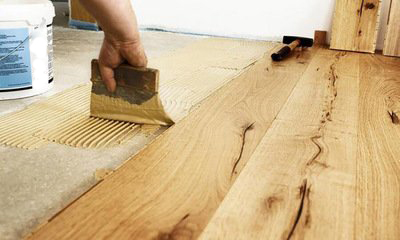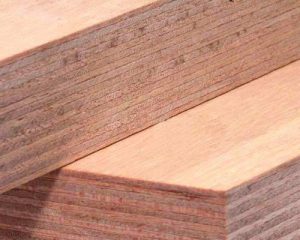If you are planning to install wood floors in your home, you will need to decide whether you want to use glue or paint. There are many different types of glue available, so make sure to choose the best one for your needs. Some of the most popular options include water-based adhesives, solvent-based adhesives, and urethane-based adhesives.
Urethane glue
When you decide to install a hardwood floor, it is important to choose the right type of glue. Having the right adhesive will ensure a strong bond and prevent moisture from getting to your wood. This is especially important if your floors will be exposed to high humidity.
There are two types of wood flooring adhesives: urethane and water-based. The former is a strong, flexible, waterproof adhesive that is ideal for solid hardwood floors. It also cures quickly.
Water-based glue isn’t as durable as urethane, but it’s easier to clean up. Plus, the VOC content is low. However, water-based glue may become undone if wet.
Urethane is the most widely used wood flooring adhesive. It’s not only effective for solid floors, but it can also be used on plastic, stone, metal and wall panels. It’s also eco-friendly, and offers a waterproof finish.
Bostik’s Best is a one-part urethane adhesive that’s great for both engineered and solid hardwood. It’s waterproof, and it moves with the expansion of your wood.
You’ll need to allow the adhesive to cure for 12 to 20 hours before you can walk on it. Make sure you use the correct trowel and apply it evenly. Also, be careful when dragging tools over it. If you accidentally snag it, you can rub it off with mineral spirits.
Using the right glue isn’t complicated. Just follow the directions. Read the labels to make sure you don’t waste your time.
As with any adhesive, you’ll want to be sure it can stand up to the weather. Depending on the humidity, your glue may need to cure for up to 24 hours before you can use it. Luckily, there are some that can last longer. For example, PUM 950 Power-Mastic is a urethane based high strength adhesive that’s waterproof, easy to spread, and has no isocyanates.
The best adhesive for your wooden floors isn’t necessarily the most expensive. Look at the features of each option and choose the one that will give you the best results. Choosing the wrong type of adhesive can cause damage and ruin your floors.
Poly-based adhesives
If you are looking for a marine glue for wooden floors, then you should look for one that can offer you moisture control and a strong bond. You should also make sure the glue you choose is eco-friendly and offers a waterproof finish.
One of the best adhesives for hardwood flooring is urethane. The urethane adhesive is made up of chemicals that combine with the wood’s lignin and provide a waterproof finish. When cured, the adhesive forms a strong bond.
Another good choice is epoxy. It is fast-drying, and it creates a solid, durable bond. This product can be used on wood, metal, and plastic. However, it is not recommended for coating or varnished surfaces.
In addition, there are several different types of adhesives to consider. These include epoxies, polyurethanes, and water-based adhesives. Each type has its advantages and disadvantages. For instance, epoxies are known for their speedy cure times. Polyurethanes are water-activated and can bond well in humid conditions. They are also easy to clean up.
Water-based glues are not suitable for hardwood flooring, as they can come undone when wet. However, they are also less costly. Unlike epoxy, they do not require steam at the point of application. Some of them even contain low VOCs.
There are also other types of adhesives, such as cyanoacrylate, or superglue. Although this product isn’t as strong as some others, it can create a powerful bond. Fortunately, you can reverse the process at any time.
Choosing the right adhesive for your needs isn’t as hard as you might think. As long as you read the labels and take into consideration the features of each, you can find a glue that suits your needs. But if you don’t, you may end up with a glue that doesn’t do its job.
Wood floor glue is available in two types. The first is a PVA-based glue. The second is a polyurethane-based glue. Depending on the humidity of your room, the glue can dry within a few hours or a few days. Make sure to use the right trowel, spread the adhesive evenly, and allow it to dry.
Solvent-based adhesives
The choice of adhesive for your wooden floor depends on many factors. For starters, you will need to understand how different types of adhesives work. This includes what they are made of, how they apply, how they clean up, and how they cure. You also have to consider the environment in which the flooring is being installed.
The most common adhesives used for wood flooring are water-based adhesives and polyurethane adhesives. Water-based adhesives are easy to apply, clean up, and are generally eco-friendly. They also do not contain VOCs. However, they are not as durable as organic solvents.
Polyurethane-based adhesives create a chemical bond between the wood and the concrete. These adhesives are a good choice for high-strength constructions. In addition, they are moisture-proof. But they are also susceptible to moisture damage.
Water-based adhesives are more durable than organic solvents and are also easier to apply. However, they can come undone when wet. So, if you are installing a water-based adhesive on a hardwood floor, ensure you leave the substrate dry before stepping onto the floor.
Urethane-based adhesives are stronger than water-based adhesives, but they can weaken if exposed to too much moisture. Therefore, they are not a great choice for hardwood flooring. Instead, choose a polyurethane-based adhesive if you are worried about moisture damage.
Polyurethane-based adhesives are a popular choice for hardwood floors because of their strength, durability, and moisture resistance. They can also help dampen sound.
There are two main types of polyurethane-based adhesives: a water-based, or semi-permanent, and a urethane-based, or permanent. Both are available in a wide variety of strengths and applications. Some adhesives are designed for cold temperatures, while others are formulated for warm, humid environments.
When choosing a wood flooring adhesive, it is important to read the label. Each manufacturer has its own specifications for the materials and environmental conditions. If you have questions, it’s a good idea to contact the manufacturers’ technical department.
You can also ask the professionals in your area. They will be able to recommend the best glue for your specific needs.
Water-based adhesives
There are several types of adhesives available to connect wood floors to the subfloor. Each has its own uses and directions. The best type of glue for hardwood floors is determined by your needs and budget.
Urethane glue is one of the most popular types of adhesives for hardwood flooring. It offers an extremely strong bond and a waterproof finish. However, it must be cleaned carefully. If used incorrectly, the adhesive can unravel.
Water-based glue is another option. It is less expensive and easier to clean. But it can be easily ruined by moisture. Therefore, it is not a good choice for wood floors.
Acrylic glue is a good option for vinyl and thermoplastic polyolefin floors. It is also good for gluing carpet to wood. For best results, it must be mixed according to the manufacturer’s directions.
Polyurethane is another type of glue for hardwood floors. It forms a chemical bond with the lignin in the wood and bonds with it strongly. This means that it does not dry out the wood fibers. In addition, it is very flexible when dry.
It is important to know how to choose marine glue for wooden floors. The correct adhesive should offer a waterproof finish and the ability to withstand moisture. Depending on the humidity, it may be necessary to leave the wood to cure for a day.
Several adhesive manufacturers offer a moisture warranty. You should check the product’s label to see whether it offers a moisture guarantee. Most adhesives have a 12 to 20-hour drying time, but you should not attempt to apply the glue in one session.
For better results, allow the wood to dry for a day. When you are ready to install the floor, you should use a clean trowel and evenly spread the adhesive over the substrate. Ensure that the surface is free of dust, dirt, and other debris.
Floorboard glue is very flexible when it is dry. This is due to the fact that it does not contain VOCs, or volatile organic compounds. Also, the glue does not give off fumes.



